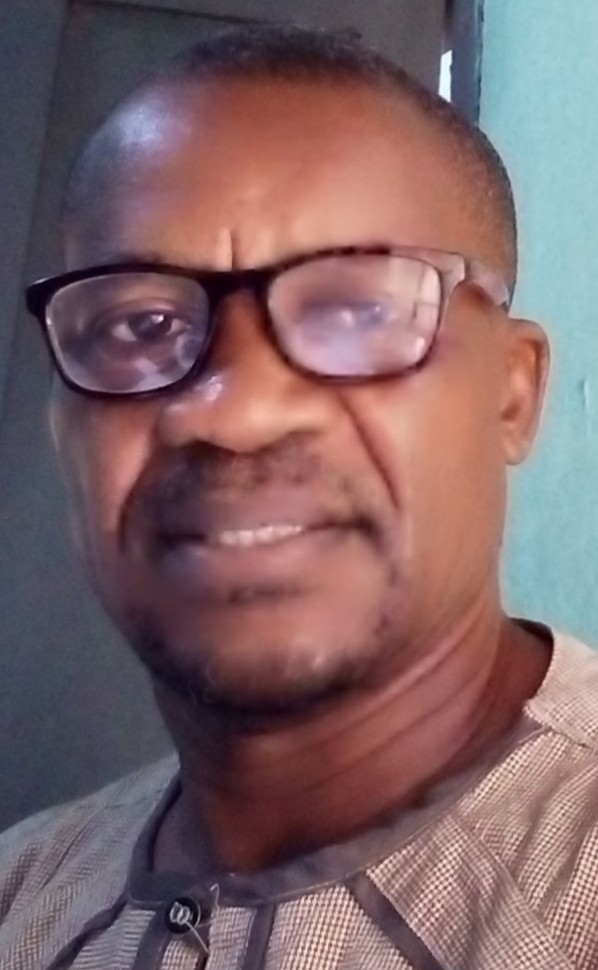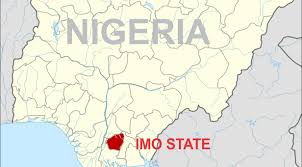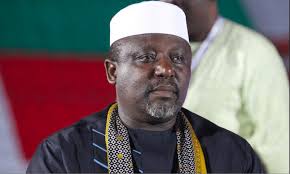BY RICHARD ODU
Labour Party presidential candidate in the last presidential election, Mr. Peter Obi, daily, presents reasons for people to believe that he knows the problems of this country. In a post-election interview, Obi who is challenging the process that produced All Progressives Congress (APC) candidate, Asiwaju Bola Ahmed Tinubu, as president-elect, called for a system or institution that should train politicians or anyone else who cares to learn, on the rudiments of politics and governance.
Indeed, events in the current democratic dispensation in Nigeria indicate that a majority of our public office holders who ride to power through the ballot box habour distorted notions about the workings of government and democracy, the globally accepted system of government. Many, also, do not have elementary knowledge of what obtains in a modern state. When they seem to know, they throw the knowledge to the winds and prefer to tread the path of the ruffians. There lies the reason for the constant flux Nigeria has been experiencing since it adopted democracy as its mode of governance.This behaviour cuts across all positions, be they governors or legislators in the federal and state levels.
The sickening display of lack of knowledge of government, its arms, their roles and hierarchy on the part of public officers have constituted a clog in the smooth running of public affairs. It ought to be common knowledge that the three arms of government, the Executive, the Legislature and the Judiciary, operate on the same level, and this principle of separation of powers is actually the plank upon which democracy is built. It ensures checks and balances and prevents absolutism.
However, the contents of our statute books seem to make the Nigerian governance system look like an admixture of plutocracy, autocracy and oligarchy cloaked in the colour of democracy.A former state house of assembly speaker once referred to a governor as his “oga”, meaning that he was subordinate to the governor. It is unlikely that this speaker with a shallow knowledge of the powers of the legislature and his status in government would muster courage to checkmate the governor if he turns out to be malfeasant. His relationship with the governor remains a master-servant one. In such a governor’s hands is an open cheque to revel in impunity, aware that no one has the lever to question his actions. Added to this is the immunity clause that shields the executives from all forms of legal action. What else do we attribute this sordid situation to than the preponderance of persons who could only pass as semi-literate in our political arena? The evidence of this is in the number of certificate forgery cases that daily inundate the courts during and after elections.
Among the younger generation of Nigerians, there is the concept that a good politician is one who is able to, as much as possible, hoodwink the people and rig himself into power, and who also possesses the ability to keep deceiving the people for the period he remains in power. Only a few, if any, see politics as a game that ought to sieve the bunch and bring out the best hands to manage the affairs of the state on public trust.Perhaps, the long years of military rule has internalized in the average Nigerian the belief that government must be run on the basis of impunity rather than the rule of law.
General Ibrahim Babangida, on toppling the government in 1985, changed his nomenclature from Head of State to President to reflect a democratic sense as he planned his timetable for transition to democracy. He also instituted a Centre for Democratic Studies where aspirants to public offices were trained to be good democrats and public affairs administrators.
However, the general ended up destroying what he built. Our people, both in and out of government, need to understand that a vast difference exists between democracy and other forms of government such as monarchy, autocracy, oligarchy, and even theocracy. We must know that feudalism, which permits a few lords in the society to own the resources of wealth and determine who gets what on the basis of loyalty to them, is to democracy what oil is to water. They do not mix. An ideal democracy does not permit the majority trampling upon minority rights. If so, how do small states that are part of a gigantic federation like the United States of America, which is the bastion of democracy, survive? How did President Donald Trump come to power despite that he did not win the majority of votes in the 2016 presidential polls in America?
It is depressing to note that the older the nation grows the worse the situation gets, and the more our politicians practice impunity in the guise of democracy, or what they refer to as “homegrown democracy” in which thuggery reigns supreme. An adage often attributed to Thomas Jefferson says that when the government fears the people, there is liberty, but when the people fear the government, there is tyranny. It is time to alert the international community that despots in the African continent on the whole now hide under the cloak of democracy to practice their despotism.Nigeria’s political field appears to have been infiltrated by crooks that see it as an avenue to amass stupendous wealth or to make attempts to clean up their dirty pasts.
These people, most of whom did not pass through formal education, railroad themselves into power, refusing to either learn the fundamentals of democracy or implement its principles.The entire scenario awakens the need to revive the Centre for Democratic Studies while also making it compulsory for political aspirants to show certificates of having passed through the centre before they are allowed to stand for contests. For the purpose of catching them young, government, as a subject, should be thought vigorously alongside civics in our schools to get the younger generation acquainted with the roles and functions of the executive, the legislature and the judiciary, the meaning of separation of powers, the limits of the different arms of government, among others. Emphasis should, in addition, be laid on political and management-related subjects such as history and economics.
Oftentimes we lament the economic downturn of the nation, forgetting that some of the powerful people in government in whose hands we entrusted the economy know little or nothing about micro- let alone macro-economic.The nation must quickly review the law that bars tested technocrats from political contests except they resign from their jobs. A professor or lecturer in the university, a journalist or broadcaster of repute, a top civil servant that knows his onions, a company worker or executive, among others, should be able to take leave of absence from the work place to stand in an election. If he or she fails in the election, or in the event of the completion of his or her tenure, the law should permit him or her to return to his job.This arrangement has the potential of forestalling corruption if an errant public office holder is made to forfeit his terminal benefits at his primary workplace. The uncertainty of elections and the thought of life after a failed attempt help to scare our best brains away from the soapbox as many of them would be reluctant to quit their comfort zones to join politics. Such a liberalization of partisan politics affords the electorate a wide range of choice of capable candidates.
On the other hand, limiting the political space to the jobless and inexperienced members of the society only leaves us contending with incompetence in policy formulation. It is time we began to examine whether we are truly practicing a democracy especially in a situation where we are yet to operate under a constitution written by representatives of the people, and whether our kind of federalism is what the world knows as federalism and whether it is truly compatible with democracy. On a candid Note, democracy does not end in how many votes that were cast in the ballot box. Our politicians must know this.
Dr. Odu can be reached through dirimrich2018@gmail.com.
“It is depressing to note that the older the nation grows the worse the situation gets, and the more our politicians practice impunity in the guise of democracy, or what they refer to as “homegrown democracy” in which thuggery reigns supreme. An adage often attributed to Thomas Jefferson says that when the government fears the people, there is liberty, but when the people fear the government, there is tyranny. It is time to alert the international community that despots in the African continent on the whole now hide under the cloak of democracy to practice their despotism.Nigeria’s political field appears to have been infiltrated by crooks that see it as an avenue to amass stupendous wealth or to make attempts to clean up their dirty pasts”









